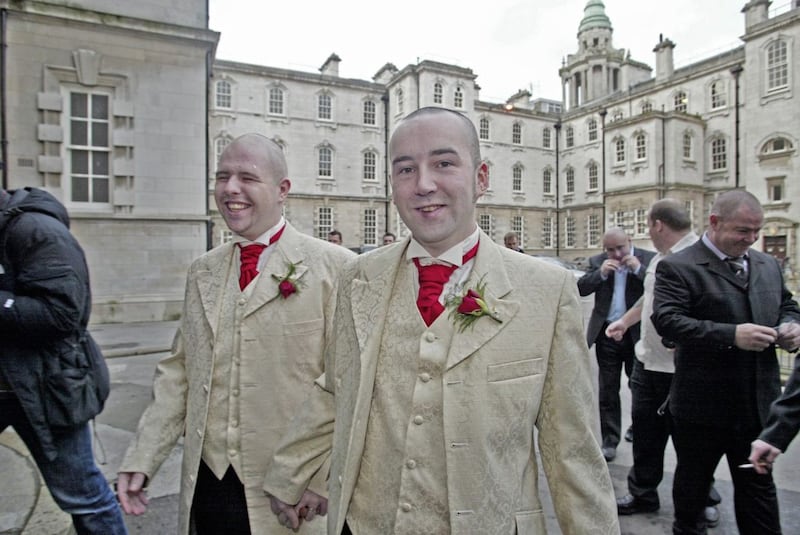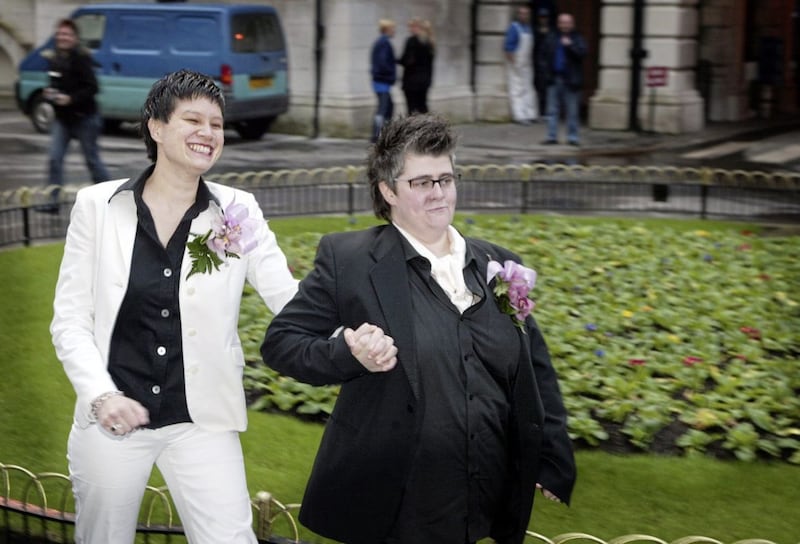A HISTORIC judgment is expected tomorrow at the High Court in Belfast when a judge rules on whether to allow same-sex marriage in Northern Ireland.
Three couples are challenging the current law in Northern Ireland with a two-pronged legal process.
Shannon Sickles and Grainne Close - the first women to have a civil partnership in the north - and Christopher and Henry Flanagan-Kane - the first men have a civil partnership - are challenging, by judicial review, the assembly's repeated refusal to legislate for same sex marriage.
The couples broke legal ground by becoming the first to enter a same-sex civil union in the UK in 2005.
A third couple involved in the action have had their identities anonymised at the High Court.
Known by Petition X, they were married in England in 2014 but live in Northern Ireland.
Their challenge is to the current law which means same-sex marriages entered into in England and Wales are downgraded to civil-partnerships in Northern Ireland.

The legal process was established in 2013 following negotiations between the British government and the Northern Ireland Assembly.
Successfully overturning this rule would mean same sex marriages are recognized in Northern Ireland for the first time.
Both cases have been under consideration for almost two years by Mr. Justice O’Hara and are being dealt with at the same time because of the close nature of the issues.
Ms Sickles said the case she and Ms Close are taking with the Flanagan-Kanes is "distinct" from the anonymised petition.
"Our case is distinct in that winning this is about bringing same-sex marriage to all couples in Northern Ireland," she said.
"We're looking for same-sex couples to be able to get married in Northern Ireland, not for specifically for a marriage which happened in another jurisdiction to be recognised."

The couple say having gay marriage recognised in Northern Ireland is important "to us, our friends and family and the wider lesbian and gay community".
They said they "feel confident about getting a positive judgment on Thursday".
"It's unfortunate that it has come to the courts, but we're also ready to be in it for the long haul should an appeal be made."
Both judgments are expected tomorrow afternoon.
The solicitor representing the couple taking Petition X, Ciaran Moynagh, said they have been left distressed by the "downgrading" of their marriage.
"This couple took their vows because they believe in the traditional values associated with marriage. They see it as the ultimate sign of commitment and best foundation for a family. That’s why having it downgraded to a civil partnership has been so distressing."






